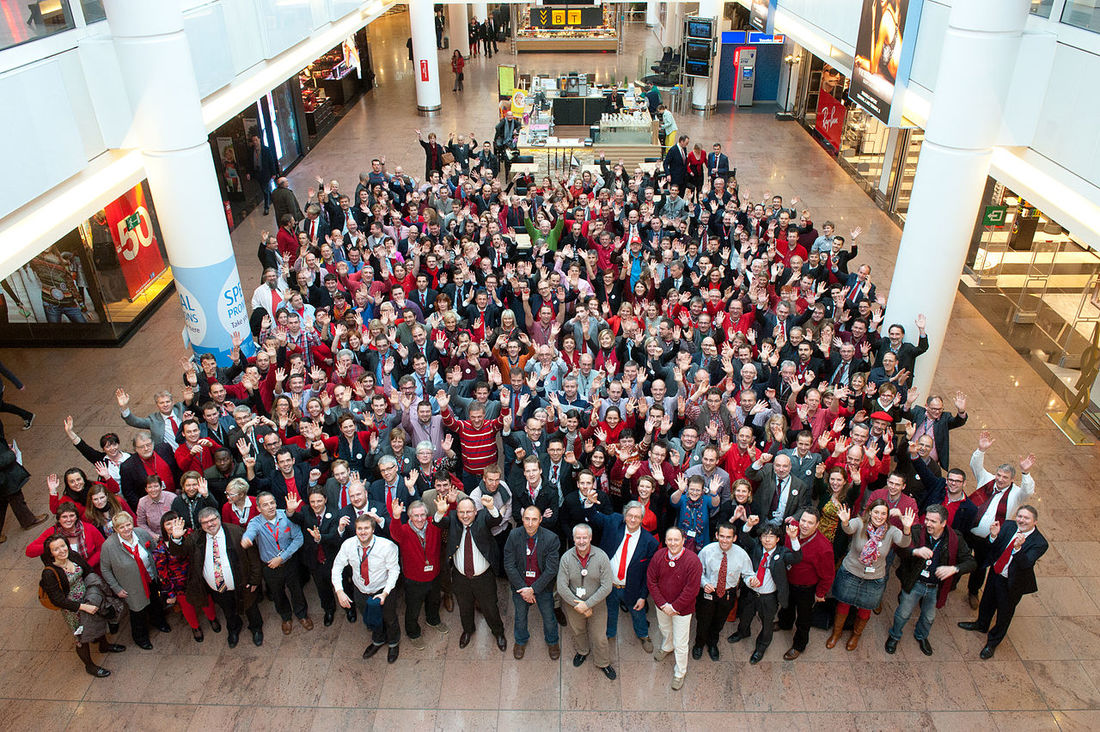Have you considered the importance of the relationships you have with both yourself and your colleagues?
The workplace is a complex mix of relationships and peer-bonding- so, how often do we stop and think about what this actually means?
It is a known fact that morale and cultural standards in the work place not only affect the individual, but also other employees in the network around them, too.
For example, in a relaxed workplace, a new employee previously accustomed to working under high stress and high workloads will jump into their new role and naturally resume that same frantic pace. Suddenly, they detect and quickly learn the established workplace culture at their new position, and in an attempt to fit in and integrate, their behaviour adapts to the accepted pace of all those around them. This also applies vice versa, where a relaxed individual joining a high paced workplace will pick up their own game or quit.
This cultural integration effect can never be labelled as specifically good or bad; it is what it is. But knowing that there is an equilibrium of standards between colleagues is an interesting insight.
One fact about the above is that, whilst the team usually have the majority of their effect on establishing the overall culture in a workplace, an individual always leaves their mark, causing a small blend.
In other words, an individual always has an impact on the overall culture, causing it to shift slightly, and the more individuals who join, the more the culture morphs into something different.
For example, if a hard worker enters, they may relax a little in an established, relaxed culture, but their hard work ethic imprints on the culture somewhat, and raises the bar a little more than previously, because the surrounding employees observe the rewards he or she reaps when they work that little bit harder. The same goes for the reverse: where a high paced culture may continue to work at this pace when a relaxed employee newly joins, the team may begin to discover that the midpoint between the new employee’s slower pace and their own is more comfortable, and the blending causes the workplace culture to shift.
All of this demonstrates how much one individual can impact an overall workplace, and it is important, not only for one employee to evaluate themselves for self-improvement and growth, but also for employers to harness this knowledge to create favourable, effective and efficient cultures to benefit all stakeholders. In other words, employers and managers must appreciate this cultural phenomenon and continually educate their teams in order to nurture a prosperous working environment.
While upper management and employers can do their best to encourage a learning environment and improve a workplace culture, in the end, it’s truly up to us as individuals. For our own personal growth and those around you, it’s critical that we all take up the opportunities we are constantly presented with, and take full advantage of them.
Examples of Hurdles to Self-Reflection
Below are three examples of how we can hinder both our careers and our workplaces with excuses, and also how to overcome them.
1. Shifting Accountability
Accountability for failures or discrepancies is a prominent demonstration of the effect an employee can have on others, which highlights the need for personal self-reflection in business. When responsibilities are questioned by upper management, employees can pass the blame to another member. Passing the blame like this shifts the heat off yourself so that you seemed powerless in a difficult situation, meaning that you were not able to assist with changing the outcome to be positive.
Many of us do lay blame so easily when the focus comes upon us. Victimising a scapegoat (for example, “it was the client’s fault for not knowing what they want!”) can appear to have benefits, but it can also mean that you fall into the trap of blocking yourself from learning. The client may have had a reason for knocking back your proposal, and instead of trying to find out how to avoid this the next time and every other time after that, you end up defending yourself by blaming them.
Unjustified blame is a human emotion fuelled by fear of embarrassment, and can delay detecting a weakness in yourself for a long time, rather than facing and overcoming it. By self-reflecting on personal accountability, and encouraging employees around to do the same, it can create a culture of bravery, where less finger pointing and more action takes place.
2. Justification
Another example of shifting accountability is justification.
This occurs when someone blames something non-human such as lack of time, resources, skills, etc. Justification has similar negative side effects to shifting accountability: where you justify your failure rather than face it and take action. Something I always say is, people may be busy, but will make time for something they really want to do (a fact often seen in relationships: if you like someone, you will make time for them regardless of your schedule- a hard truth).
If you self-reflect and find yourself justifying your failure on a lack of skill, find out why and do something about it: take a course, ask other employees for advice, or your employer for further training.
3. Denial
The last example of shifting accountability is denial.
This is when you know something is negative, but ignore or tolerate it for whatever reason. By far, denial is one of the hardest to self-reflect upon, as it can run so deep that you may not even know you are in denial. Denial keeps you from reaching your goals, because it is more comfortable to settle, than fight.
Your career and life require you to work hard to be successful, and denial is your enemy, telling you everything is just ok as is, regardless of issues. Self-reflect on this, and delve deep to location issues you have, and then find solutions. Often, identifying the problem is the hardest part, simply because you are so used to being in denial about it, than the actual issue itself. You may realise, for example, that a promotion is within your grasp if you just applied yourself more in areas you know yourself to be weak in.
So, from the examples above, self-reflection can often lead to you discovering weaknesses in yourself that you can change for your own personal benefit. The nice perk is that sometimes, these positive changes flow on to your team members and people close to you, who feed off your example of being more transparent and self-aware.
This discovery and positive addition to the corporate culture of a workplace can be more valuable than most people realise.
To engage your customer and achieve ongoing business success today, you need quality copywriting and consistent content. However, we understand that this is easier said than done.
You’re time poor and spread thin, and writing isn’t your expertise. So, focus on what really matters, while we take care of all of your copywriting and content marketing needs!
For more information or to speak to a quality copywriter to get the results you’re business deserves, contact me now at chris@melottimedia.com.au.
I can sharpen your words to achieve your goals, today!
Christopher Melotti
Melotti Media Copywriting and Marketing Solutions
www.melottimedia.com.au
Click here to view the Copywriting FAQ page for all you need to know










